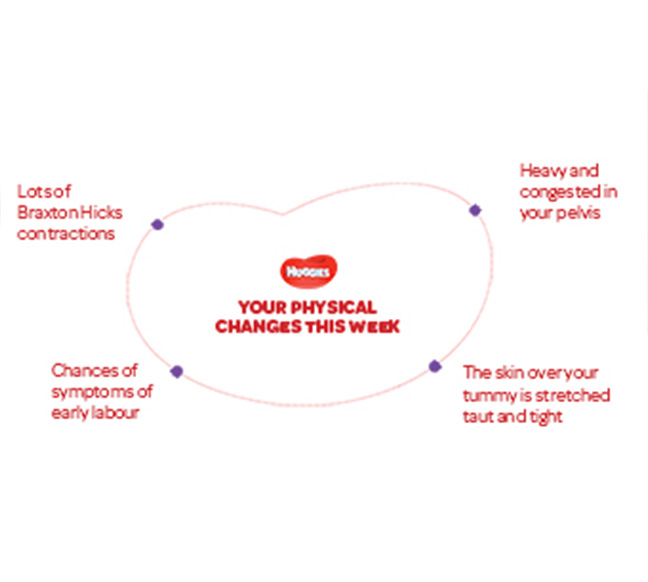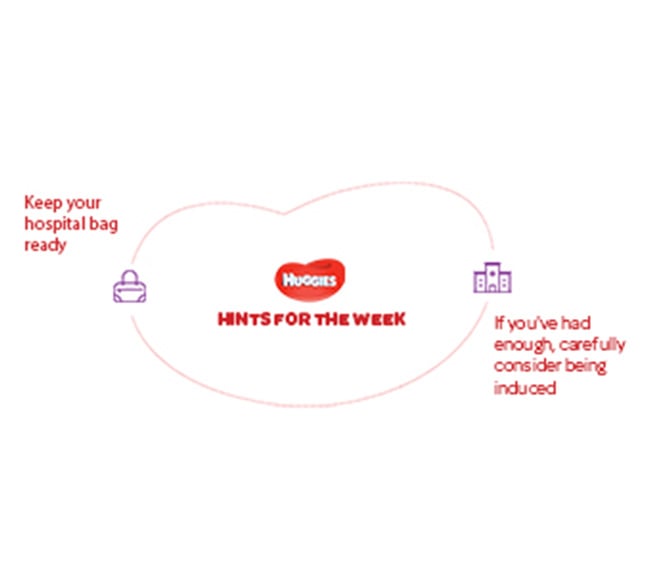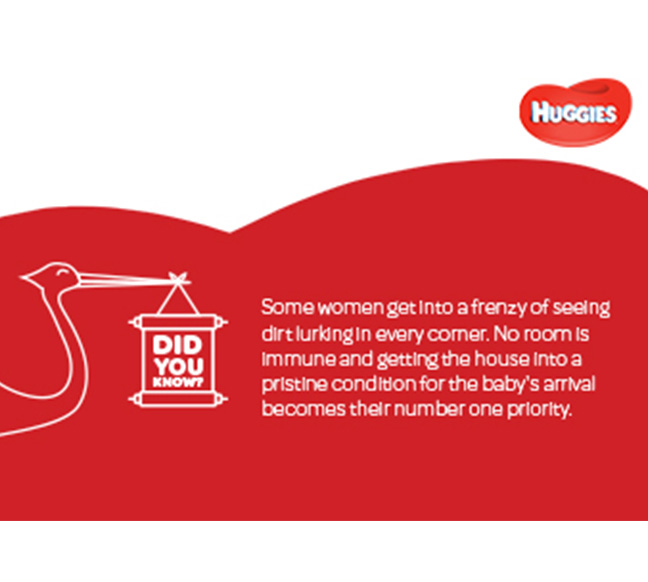Although you're feeling as if you've had enough, chances are your baby isn't perturbed. However, his/her is very cramped inside your uterus and will soon have to be evicted, no matter how cosy it is. Your doctor will ask you about the baby's movements, how active they are and if you have noticed any change in the pattern of activity.
They may even ask you to keep a record which you will need to bring to your ante-natal appointments. You may need to have a CTG (Cardiotocograph) this week, which monitors the baby's heartbeat as well as the muscle activity of your uterus.
Your physical changes this week

Braxton Hicks contractions will promote a surge of oxygenated blood to your uterus and the baby. Sometimes they may seem quite fierce but unless they are painful and regular don't be concerned.
If you have a sudden gush of fluid from your vagina, a series of regular, painful uterine contractions which are coming approximately every 15 minutes or a steady, continuous pain in your lower back, check with your doctor. These can all be symptoms of true, early labour.
Your pelvic muscles are working overtime in supporting the concentrated weight of your uterus and like an overstretched sling, they are sagging at the critical points. Do them a favour and sit when you can. Find a comfortable chair and set yourself up with a hearty beverage, a good book and the phone by your side.
Hints of the week

Having to scramble to find items at the last minute can create stress. If you have a normal vaginal delivery the longest you are likely to stay in hospital is 3 days, so, remember to pack light.
If you've had enough of being pregnant and want to be induced, discuss options with your care provider. Choosing to induce labour is a personal decision and multiple factors need to be considered.
If you have been booked for a caesarean section delivery, you are likely to have had your baby in the last week or so.




